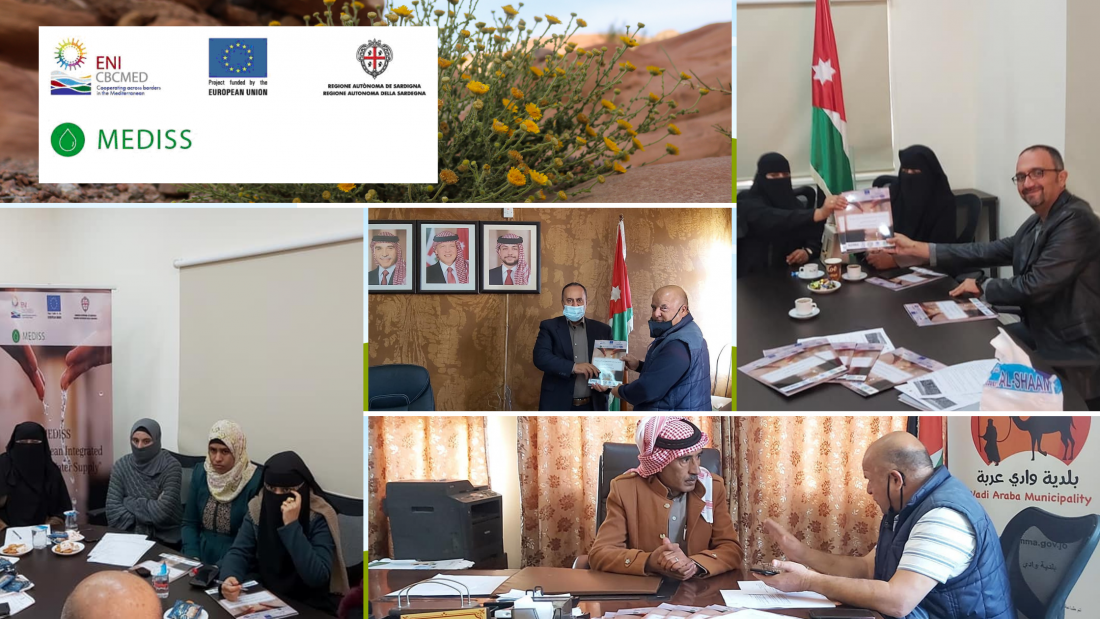MEDISS strengthens relationship with water stakeholders in Jordan

Aqaba Water Company, the Jordanian MEDISS partner, is committed to strengthening its links with stakeholders by further deepening collaboration to enhance the development opportunities and areas of collaboration offered by the MEDISS project.
Aqaba Water Company has recenlty held interviews with water stakeholders and awareness sessions with local community representatives and farmers, Wadi Araba Municipality and the Jordanian Hashemite Fund for Human Development (JOHUD).

The aim of Aqaba Water Company in MEDISS Project is to contribute to the development of the remote area of Al Rishaas by improving the quality of drinking water:
- Developing community related to drinking water services.
- Strengthening the relationship between the Aqaba Water Company and the European Union.
- Creating new opportunities for future projects aimed to develop Aqaba Water Company service area.

MEDISS in Jordan
The Mediterranean Integrated System for Water Supply (MEDISS) project addresses the issue of improving the quality of saline groundwater present in the MED area opening up alternative irrigation for higher quality and more diversified cultivations.
Six partners are involved in the project: Aqaba Water Company (Jordan), PWEG and Jericho Governorate (Palestine), Institut des Regions Arides (Tunisia), CRENoS and ENAS with the local stakeholders Cooperativa Produttori Arborea, Comune di Arborea (Italy).
According to the features and specific needs of the partner areas, MEDISS will test innovative solutions in the use of treated wastewater and desalination of brackish water.
In Jordan (Wadi Araba - Al Rishaas) innovative approach never tested before in the Middle East is applied to a water desalination plant of brackish groundwater, extending the membrane’s lifetime with innovative treatments and using photovoltaic panels for energy supply. Water is then used both for irrigation and domestic use by local inhabitants.










